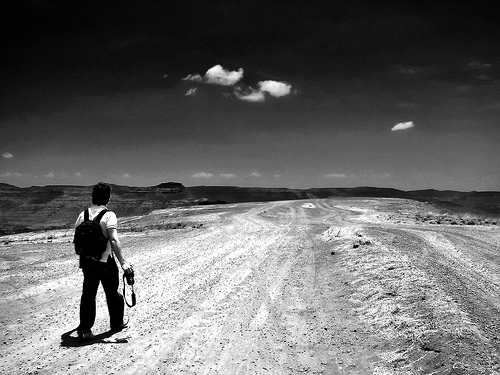Like I said in my previous two articles on anger and forgiveness, you cannot enjoy life fully if you are carrying a grudge against someone. Forgiveness is about cleansing ourselves of the poison anger is. Forgiveness is moving on. Also, I pointed out what forgiveness is not. It is not absolving someone of a crime, and it not something good you do for the other person but for yourself. While it is all easy to say from a third person point of view, it can be immensely difficult to let go of the anger when actually faced with a situation ourselves.
Below I am listing five ways which have worked for me to give up my anger and hatred towards a specific person or situation –
1. Taking a time out
The most important factor here is time. Nobody expects a father to forgive the killer of his son immediately. His anger is rightfully justified. However, after a few months, he can. After an incident which has left us angry, the most important thing that has worked for me is to take a time out. Keep a distance from the person or situation you are angry at for a few days by doing something else or going somewhere else. This time away will help us see things in perspective and prevent us from doing something which we might regret later.
2. Genuine effort to understand the other person? What would I do if in their shoes?
After a cool off period and when you are at peace with yourself and not burning with rage, we all can make a genuine effort to understand the other person. What would you have done had you been in their shoes? Do you understand the other side fully? Under what circumstances they did what they did? If we can wisely try to see the other person’s point of view, we can understand their predicament better and maybe even empathize with the person on the other side.
 3. Focus on the kind of person I want to be
3. Focus on the kind of person I want to be
Even if I am burning with anger, another thing which has worked for me is asking the question “What is the kind of person I want to be?“. Even if I have been wronged, do I want to be the person to spend my time and energy in staying angry and punishing the wrong-doer. Or do I want to be the person to love those who have harmed me and wishing for their wellness? After all, every religion asks us to love our enemies. As Buddha said, “Hatred does not cease by hatred, but only by love; this is the eternal rule.”
4. Taking a walk and doing something I love alone
You can not look from the other side’s perspective and try to understand their situation if you are not at peace with yourself. If you want to develop compassion, the first thing you need is being at peace. I try to take a long walk alone, or just sit with my eyes closed for some time. Spending some time in silence and just with my thoughts makes it easier for me to let go and forgive not only the other side, but myself too. Because my anger is doing more harm to me than the other person, the sooner I stop being a prisoner of the past the better it would be.
5. Communicate
If there is anything unspoken between me and the other party, I let it out. If the opposing party is not accessible or I might not be able to express it fully in front of him/her, I write my thoughts in an email / letter. Whether I send the letter is again, my choice, but I think it is very important to write down and express my thoughts. I express why I was angry, and that I give up my anger. I express about how difficult it has been for me, and how I have tried to see from the other person’s point of view. Once I write this letter, I go over it two or three times and strike off the lines which I think are not necessary. Doing this a couple of times makes me feel at peace with myself.
In the end, it is very important to realize that it is nobody else who makes us angry. It is our thoughts and feelings which do so, and which are always in our control. In the same way nobody can else can stop you from being angry, only you can do that.




